
Lessons from the Adam Peaty Race Clinic
In 2025, three of our competitive Juniors spent the day at an Adam Peaty Race Clinic.
Their parents very kindly took notes to share with all of our swimmers.
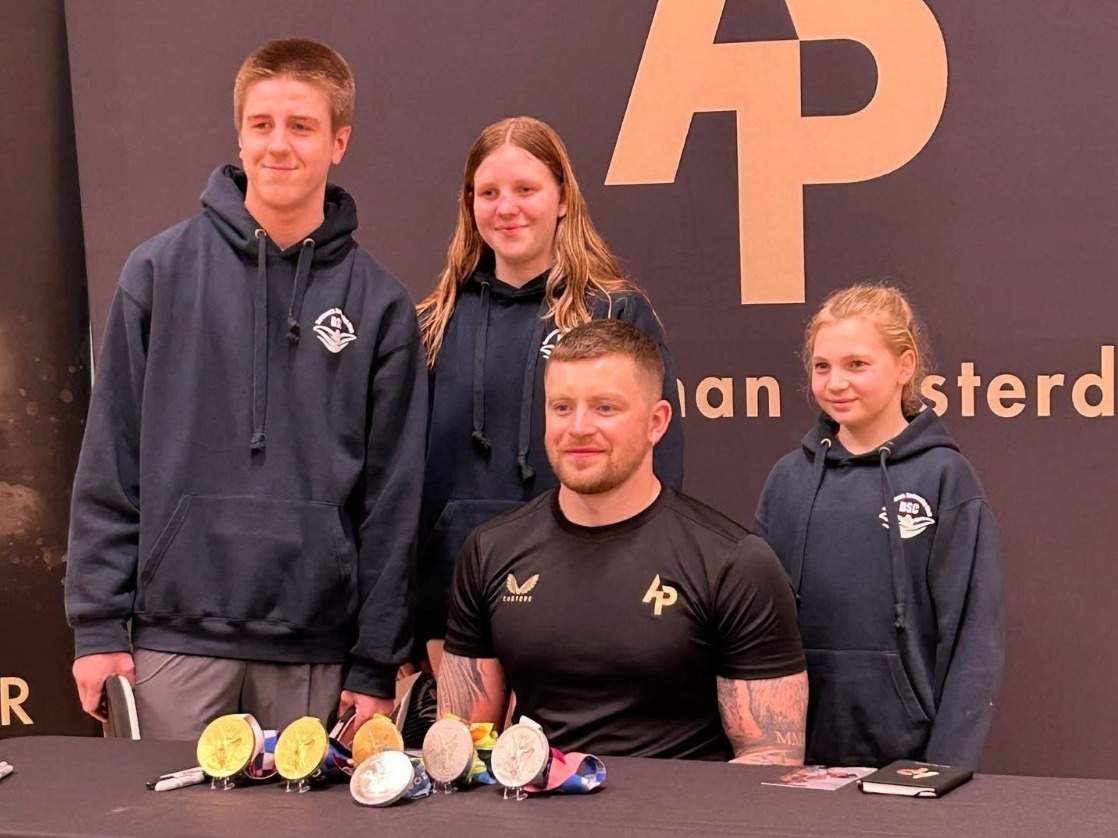
Better Than Yesterday
Attending an Adam Peaty AP Race Clinic offers a unique insight into what it takes to excel in swimming—not just in terms of physical performance but also in mindset, resilience, and long-term success. Here are some key takeaways:
Biggest Performance Gain? Sleep.
One of the most underrated aspects of peak performance is sleep. Recovery plays a massive role in training adaptation, and prioritising rest can lead to significant improvements in the pool.
The Power of Participation & Freedom
At age 18, participation in sports often spikes when athletes are given the freedom to choose their own path. This highlights the importance of keeping young swimmers engaged and ensuring they develop a love for the sport rather than feeling trapped in a rigid system.
Building Skills & Resilience
Swimming isn't just about times and medals—it's about developing skills, resilience, and a mindset that prepares athletes for challenges in and out of the water. By encouraging multi-sport participation, swimmers gain transferable skills that can benefit them in different disciplines.
Opening Doors Through Sport
Involvement in multiple sports doesn't just reduce the risk of burnout; it opens different doors. Swimmers who try other activities build well-rounded athleticism and adaptability. Understanding what other sports complement swimming can help clubs offer more opportunities to their members.
A Healthier Ecosystem for Athletes
The current model of athlete development may need to evolve. Collaboration between different clubs and sports could create a healthier ecosystem where young athletes don’t feel pressured to specialise too soon, reducing the risk of injury and dropout.
Fitter Swimmers, Greater Success
A well-rounded, fit athlete tends to find success beyond their primary sport. Fitness isn’t just about being fast in the water—it builds confidence, discipline, and habits that transfer into other areas of life.
The Risks of Specialisation
Focusing too intensely on one sport from an early age increases the risk of burnout. Variation keeps training fresh, engaging, and enjoyable. Happiness is a crucial factor in long-term athlete retention and performance.
Happiness: The Only Way to Succeed
The most important ingredient in success—whether in sport or life—is happiness. If you’re not happy, your motivation and performance will suffer. Your aspirations should be as high as you can imagine, but alongside them must have joy and passion for what you do. If you find yourself unhappy, remember that you have the power to change things. Whether that means adjusting your goals, your training environment, or your mindset, taking control of your own happiness is essential for long-term success.
The Importance of Coaching & Employability
A strong coaching environment fosters not just elite swimmers but also future coaches and leaders. Adam Peaty’s philosophy suggests that those who are "uncoachable" may struggle with employability later in life—highlighting the role of sports in teaching discipline, communication, and teamwork.
Plateauing PBs: A natural part of progression
It's common for swimmers to experience periods where personal bests plateau, sometimes lasting months or even years. Even Olympic swimmers can go long stretches without a PB, but this doesn’t mean progress has stopped. Improvements in technique, strength, and endurance may still be happening beneath the surface, setting the foundation for future breakthroughs. Trusting the process and maintaining consistency is key to long-term success.
"Better Than Yesterday"
The AP Race motto, "Better Than Yesterday," is a mindset that applies to all aspects of life, not just swimming. Every day presents a new opportunity to improve—whether that’s in training, recovery, mental approach, or personal growth. Success isn’t about overnight transformation; it’s about consistently striving to be a little bit better than you were the day before.
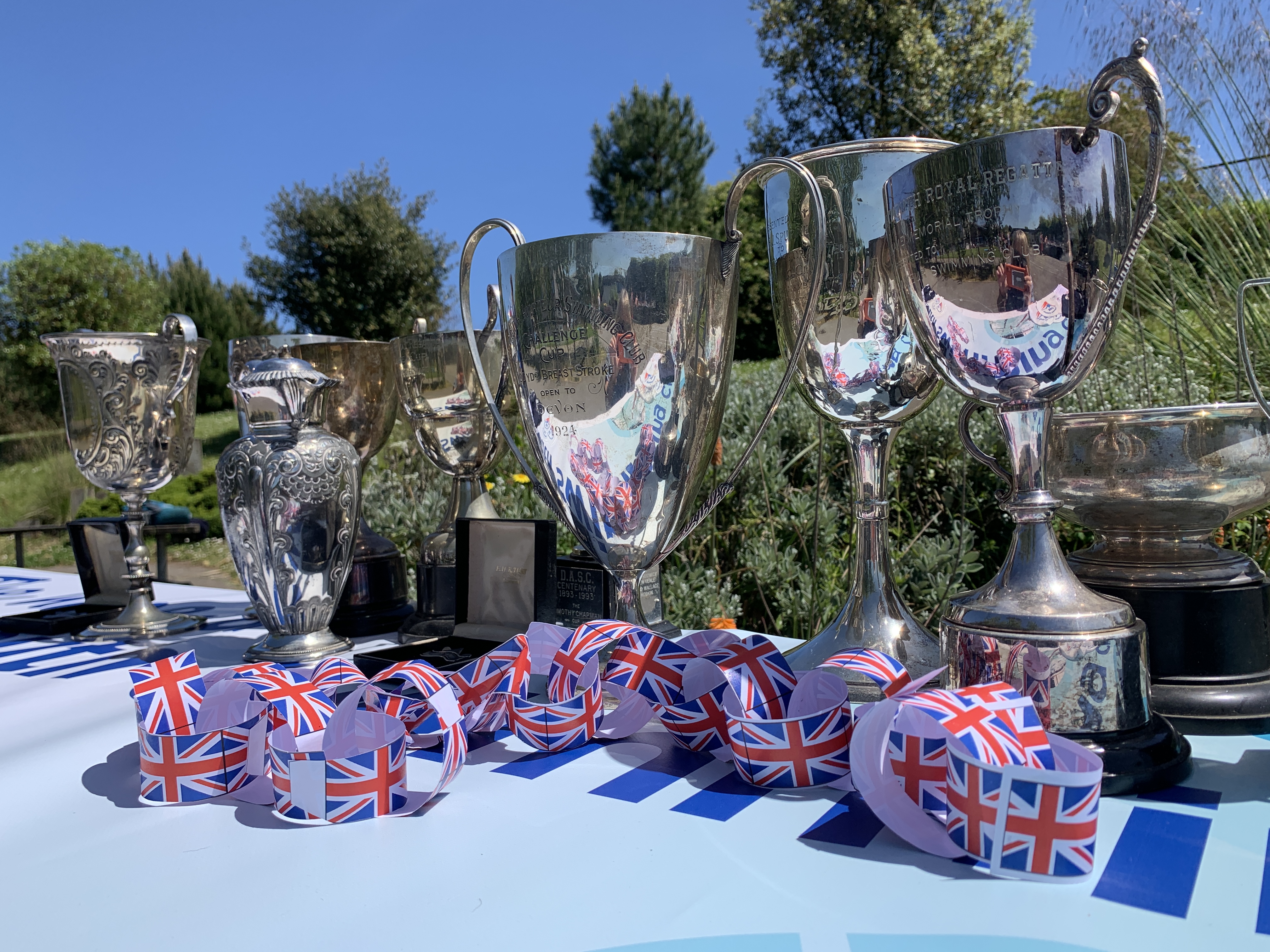 Meet our new Sponsors
Meet our new Sponsors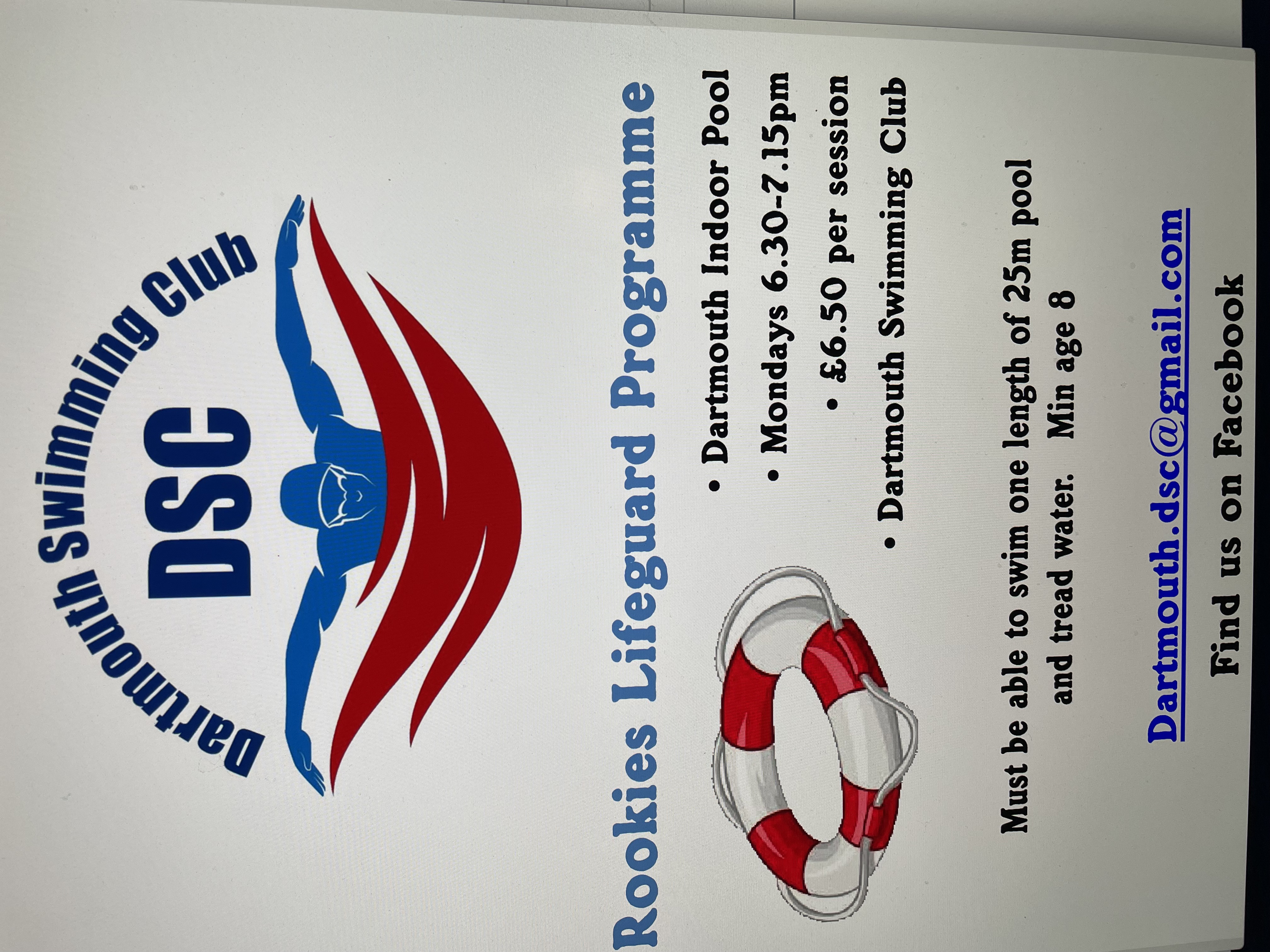 We have a new Rookies session starting 21st November at Dartmouth Indoor Pool
We have a new Rookies session starting 21st November at Dartmouth Indoor Pool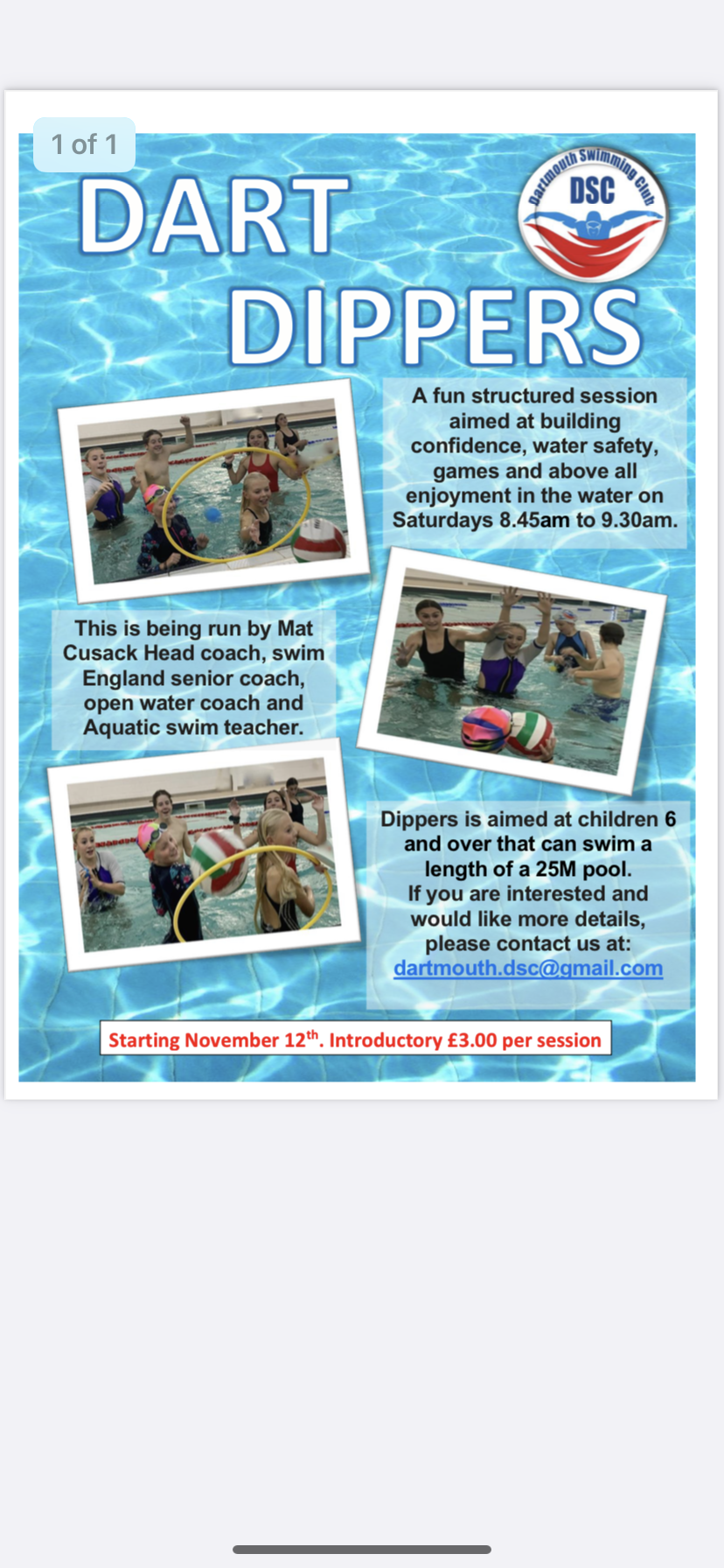 New Saturday Morning Club for age 6 and over
New Saturday Morning Club for age 6 and over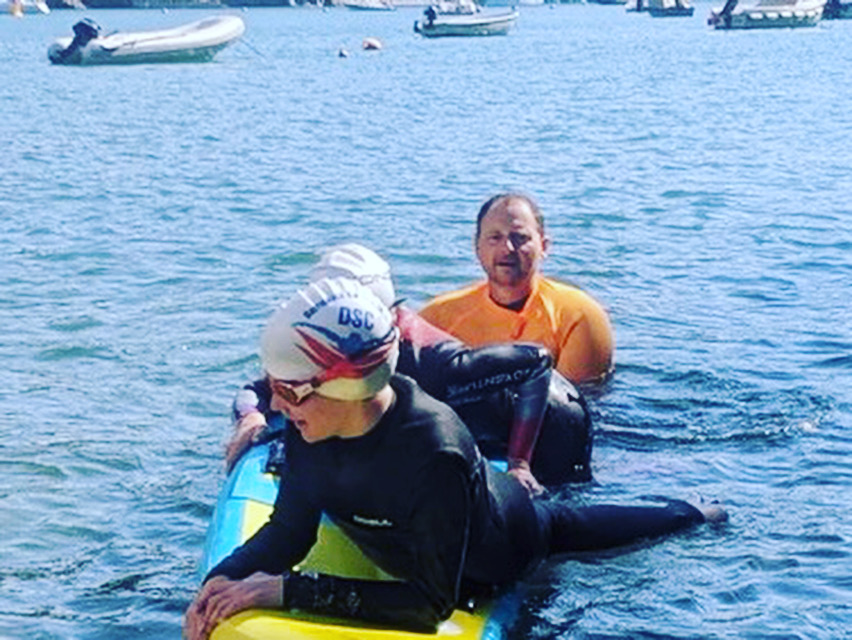 Coming up for Summer 2022, Open Water Sessions at Blackpool Sands and Warfleet Creek. Dates to be decided
Coming up for Summer 2022, Open Water Sessions at Blackpool Sands and Warfleet Creek. Dates to be decided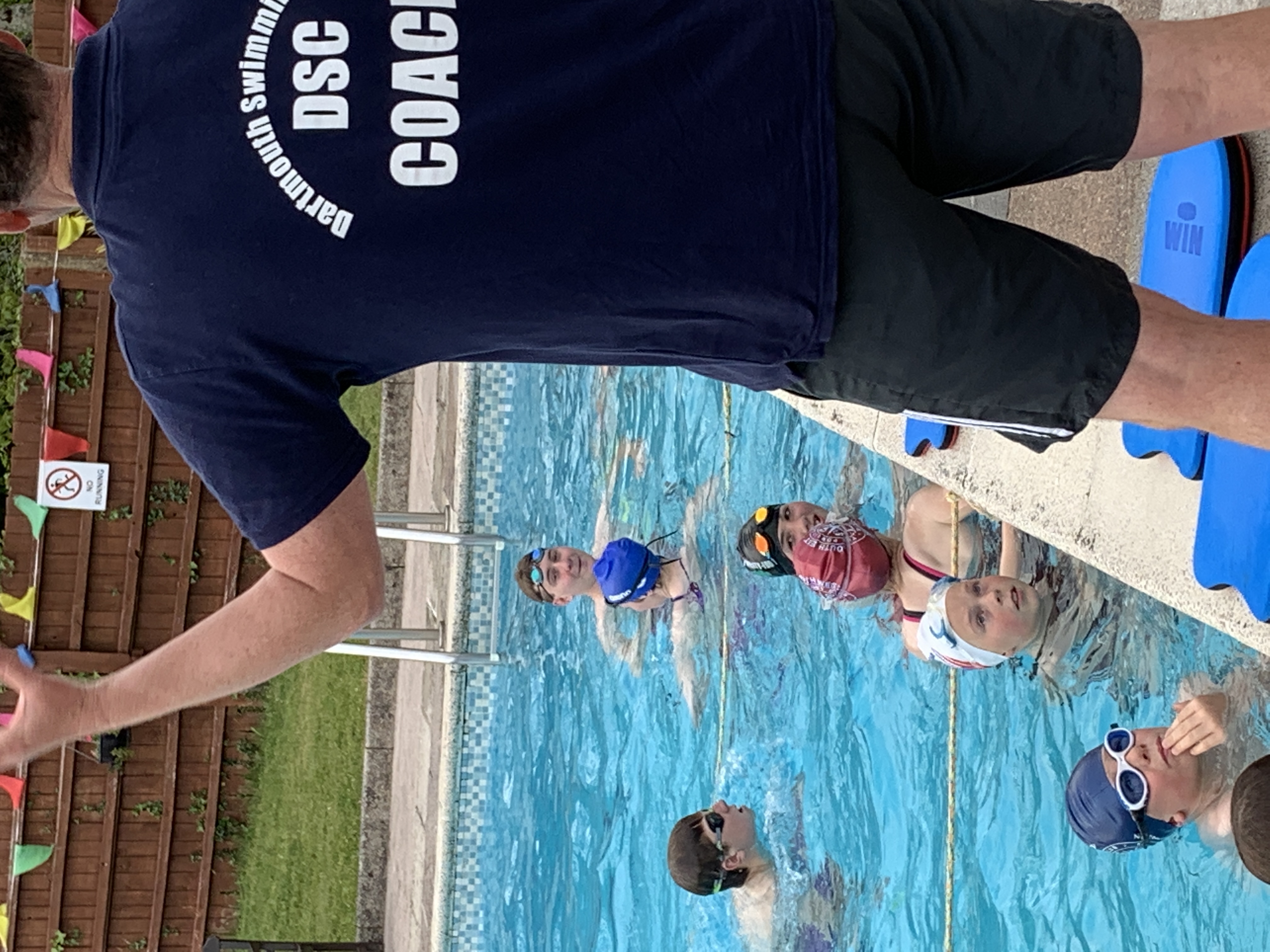 Drop In Outdoor Pool Session, Mondays 7-8pm. No need to book, just turn up. Open to Juniors and Masters. Last session 15th Aug
Drop In Outdoor Pool Session, Mondays 7-8pm. No need to book, just turn up. Open to Juniors and Masters. Last session 15th Aug